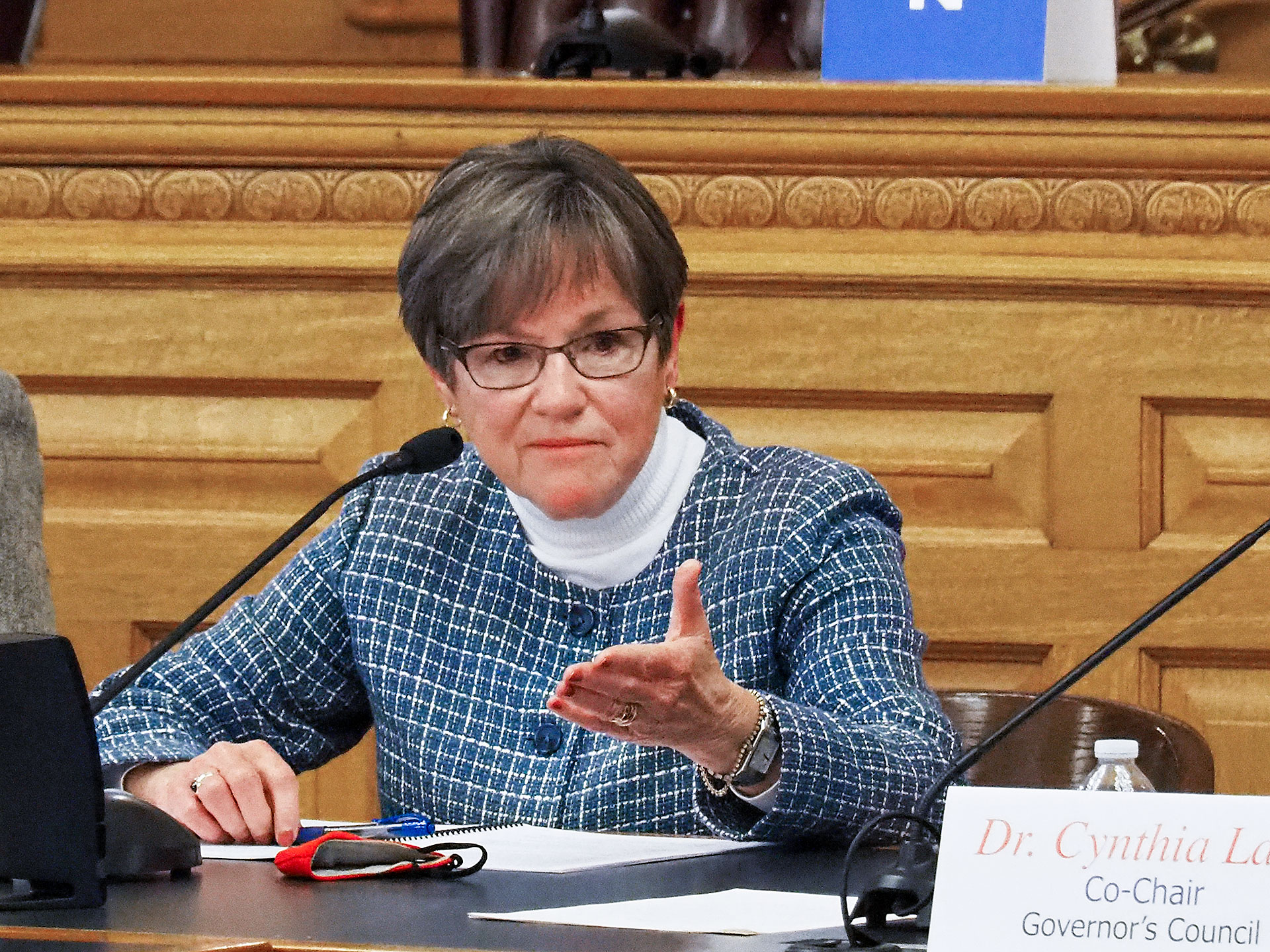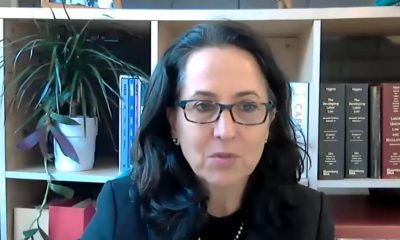National
Obama, Kennedy and a year of change
From President Obama’s inauguration to the National Equality March, the last 12 months brought a variety of real and symbolic change for LGBT Americans. Marriage was the top story of the year, but here are the 10 other biggest stories of 2009.
ten
Barack Obama becomes 44th president: Telling a massive National Mall crowd that, “all are equal, all are free,” Barack Obama became the nation’s 44th president Jan. 20. Gays from across the country joined the estimated 1.8 million people on Capitol Hill who watched Obama take the oath of office. Seconds after Obama took the oath, a detailed narrative describing Obama’s support for gay rights legislation was published to the White House web site. The page noted Obama’s support for a gay and transgender inclusive hate crimes bill, an employment non-discrimination bill covering gays and transgender people, and overturning “Don’t Ask, Don’t Tell,” among other issues. The section also mentioned Obama’s call to repeal the anti-gay Defense of Marriage Act and his support for new legislation that would provide full marriage-related rights and benefits for same-sex couples joined in civil unions or domestic partnerships.
nine
Nation mourns Kennedy: Sen. Edward Kennedy was remembered as the LGBT community’s “strongest advocate in the United States Senate” when he died in August at age 77. Human Rights Campaign President Joe Solmonese noted that Kennedy championed LGBT issues in Congress before doing so was politically acceptable and offered a strong voice of support in the 1980s when the HIV/AIDS epidemic began taking the lives of gay men. Kennedy went on to become a staunch supporter of same-sex marriage and in 1996 was among 14 senators to vote on the Senate floor against the Defense of Marriage Act. He also spoke on the Senate floor against the anti-gay Federal Marriage Amendment in 2004. “Make no mistake,” he said, “a vote for the federal marriage constitutional amendment is a vote against civil unions, domestic partnerships and other efforts by states to treat gays and lesbians fairly under the law.”
eight
Gay federal workers get limited benefits: President Obama took what activists described as his “first step” on gay civil rights in June when he signed a presidential memorandum granting a limited number of federal employee benefits to the same-sex partners of federal workers. Among the new benefits were long-term care insurance and the use of sick time to care for a domestic partner and non-biological, non-adopted child. Additionally, the same-sex partners of U.S. Foreign Service workers were granted access to the use of medical facilities at overseas posts, medical evacuation privileges from such posts and inclusion of same-sex families in overseas housing allocations. Notably absent from the list was health insurance and retirement benefits. White House officials said the administration is prohibited from providing the perks to the same-sex partners of federal workers without a change in the civil service personnel statute and the Defense of Marriage Act.
seven
Gay man leads U.S. Office of Personnel Management: John Berry became the Obama administration’s highest-ranking openly gay official in May when he was sworn in as director of the U.S. Office of Personnel Management. The ceremony notably occurred at OPM headquarters in Northwest Washington — the same building where officials once carried out a policy that allowed them to deny employment to gays seeking federal jobs. On hand for the event was longtime gay civil rights activist Frank Kameny, who was fired by the federal government in 1957 because of his sexual orientation. Berry lauded Kameny, noting that Kameny’s work made Berry’s appointment possible. “For that, Frank, I personally thank you for your leadership, your passion, and your persistence and express our nation’s appreciation for your courage in teaching America to live up to our promise and our potential,” Berry said.
six
Obama cheered at Pride event: President Obama and his wife won cheers and shouts of “I love you!” from lesbian, gay, bisexual and transgender activists during a White House celebration in June commemorating Pride and marking the 40th anniversary of the Stonewall Rebellion. The gathering came as many activists urged the president to take greater action on LGBT issues, including the repeal of the anti-gay Defense of Marriage Act and “Don’t Ask, Don’t Tell.” Obama told the crowd that the nation “cannot — and will not — put aside issues of basic equality” and that he seeks “an America in which no one feels the pain of discrimination based on who you are or who you love.”
five
Lesbian elected mayor of Houston: Gay rights advocates heralded the victory of lesbian Annise Parker in her bid to become Houston’s next mayor as a triumph for LGBT Americans. Parker, a Democrat and city controller for Houston, won the December election after taking 53 percent of the vote. Her win marked the seventh time she’d won a citywide election in Houston and made the city the most populous in the country to elect an openly LGBT mayor. Paul Scott, executive director for Equality Texas, said Parker’s victory was significant on many levels. “I think in some ways, we’ve seen the ceiling being broken, not only within the Houston area and Texas, but also nationally in terms of an open lesbian being elected into the highest-level office in the metropolitan area for the fourth largest city in the country,” he said.
four
Justice Department criticized for DOMA defense: Gay activists were outraged in June when the U.S. Justice Department defended the anti-gay Defense of Marriage Act by citing child rearing and procreation as reasons why a court should dismiss a legal challenge of it. Some gay Democratic activists who supported Obama in the 2008 presidential election said administration insiders told them the president was not directly consulted on the brief’s wording, but he nonetheless drew significant criticism. When the Justice Department acted again in August to defend DOMA against a separate challenge, the language was toned down and included a note that “this administration does not support DOMA as a matter of policy, believes that it is discriminatory, and supports its repeal.”
three
Washington Blade ends 40-year run: After chronicling the LGBT community for 40 years, the Washington Blade published its final issue Friday, Nov. 13. Abruptly forced to close as its parent company, Window Media, went into Chapter 7 bankruptcy, the Blade was widely acknowledged as the LGBT community’s newspaper of record. It covered a range of issues — from the outbreak of the HIV/AIDS epidemic to the advent of same-sex marriage — with a depth unmatched by mainstream media outlets. But coverage of local and national LGBT issues did not end when the Blade locked its doors. Strongly supported by Blade advertisers and readers, the newspaper’s staff quickly founded a new publication and distributed the first issue Nov. 20. The DC Agenda, a local, employee-owned business, is now in its seventh week.
two
Obama signs hate crimes bill: Despite several efforts to derail the bill, President Obama signed the Matthew Shepard & James Byrd Jr. Hate Crimes Prevention Act into law in October as part of the Fiscal Year 2010 Defense Authorization Act. The act allows the Justice Department to assist in the prosecution of hate crimes based on actual or perceived sexual orientation and gender identity, among other categories. “After more than a decade of opposition and delay, we passed inclusive hate crimes legislation to help protect our citizens form violence based on what they look like, who they love, how they pray or who they are,” Obama said. Opponents had argued the law was tantamount to creating thought crimes and could limit free speech rights.
one
National Equality March hits Washington: Tens of thousands of protesters descended on the nation’s capital in October to urge Congress and President Obama to extend full legal equality to LGBT people. Featuring a mix of veteran speakers and young faces, the weekend event included a march past the White House that ended outside the U.S. Capitol. Participants carried rainbow-colored flags and held signs calling for immediate action to enact equality. The bright, nearly cloudless sky and unseasonably warm weather welcomed crowds as several high-profile speakers called the participants to action. “If you believe we are equal, then it is time to act like it,” said Cleve Jones, a longtime gay activist and one of the chief organizers of the march. “A free and equal people do not tolerate prioritization of their rights. They do not accept compromises. They do not accept delays.”
U.S. Supreme Court
US Supreme Court rules Idaho to enforce gender care ban
House Bill 71 signed in 2023


BY MIA MALDONADO | The U.S. Supreme Court has allowed Idaho to enforce House Bill 71, a law banning Idaho youth from receiving gender-affirming care medications and surgeries.
In an opinion issued Monday, the U.S. Supreme Court granted the state of Idaho’s request to stay the preliminary injunction, which blocked the law from taking effect. This means the preliminary injunction now only applies to the plaintiffs involved in Poe v. Labrador — a lawsuit brought on by the families of two transgender teens in Idaho who seek gender-affirming care.
Monday’s Supreme Court decision enforces the gender-affirming care ban for all other trans youth in Idaho as the lawsuit remains ongoing in the Ninth Circuit Court of Appeals.

The American Civil Liberties Union and the ACLU of Idaho, both of whom represent the plaintiffs, said in a press release Monday that the ruling “does not touch upon the constitutionality” of HB 71. The groups called Monday’s ruling an “awful result” for trans Idaho youth and their families.
“Today’s ruling allows the state to shut down the care that thousands of families rely on while sowing further confusion and disruption,” the organizations said in the press release. “Nonetheless, today’s result only leaves us all the more determined to defeat this law in the courts entirely, making Idaho a safer state to raise every family.”
Idaho Attorney General Raúl Labrador in a press release said the state has a duty to protect and support all children, and that he is proud of the state’s legal stance.
“Those suffering from gender dysphoria deserve love, support and medical care rooted in biological reality,” Labrador said. “Denying the basic truth that boys and girls are biologically different hurts our kids. No one has the right to harm children, and I’m grateful that we, as the state, have the power — and duty — to protect them.”
Recap of Idaho’s HB 71, and what led to SCOTUS opinion
Monday’s Supreme Court decision traces back to when HB 71 was signed into law in April 2023.
The law makes it a felony punishable for up to 10 years for doctors to provide surgeries, puberty-blockers and hormones to trans people under the age of 18. However, gender-affirming surgeries are not and were not performed among Idaho adults or youth before the bill was signed into law, the Idaho Capital Sun previously reported.
One month after it was signed into law, the families of two trans teens sued the state in a lawsuit alleging the bill violates the 14th Amendment’s guarantee of equal protection under the law.
In late December, just days before the law was set to take effect in the new year, U.S. District Judge B. Lynn Winmill blocked the law from taking effect under a preliminary injunction. In his decision, he said he found the families likely to succeed in their challenge.
The state of Idaho responded by appealing the district court’s preliminary injunction decision to the Ninth Circuit, to which the Ninth Circuit denied. The state of Idaho argued the court should at least enforce the ban for everyone except for the plaintiffs.
After the Ninth Circuit’s denial, the Idaho Attorney General’s Office in February sent an emergency motion to the U.S. Supreme Court, the Idaho Press reported. Monday’s U.S. Supreme Court decision agrees with the state’s request to enforce its ban on trans health care for minors, except for the two plaintiffs.
******************************************************************************************

Mia Maldonado joined the Idaho Capital Sun after working as a breaking news reporter at the Idaho Statesman covering stories related to crime, education, growth and politics. She previously interned at the Idaho Capital Sun through the Voces Internship of Idaho, an equity-driven program for young Latinos to work in Idaho news. Born and raised in Coeur d’Alene, Mia moved to the Treasure Valley for college where she graduated from the College of Idaho with a bachelor’s degree in Spanish and international political economy.
******************************************************************************************
The preceding piece was previously published by the Idaho Capital Sun and is republished with permission.
The Idaho Capital Sun is the Gem State’s newest nonprofit news organization delivering accountability journalism on state politics, health care, tax policy, the environment and more.
We’re part of States Newsroom, the nation’s largest state-focused nonprofit news organization.
Kansas
Kansas governor vetoes ban on health care for transgender youth
Republican lawmakers have vowed to override veto


BY TIM CARPENTER | Gov. Laura Kelly flexed a veto pen to reject bills Friday prohibiting gender identity health care for transgender youth, introducing a vague crime of coercing someone to have an abortion and implementing a broader survey of women seeking abortion that was certain to trigger veto override attempts in the Republican-led House and Senate.
The decisions by the Democratic governor to use her authority to reject these health and abortion rights bills didn’t come as a surprise given her previous opposition to lawmakers intervening in personal decisions that she believed ought to remain the domain of families and physicians.
Kelly said Senate Bill 233, which would ban gender-affirming care for trans minors in Kansas, was an unwarranted attack on a small number of Kansans under 18. She said the bill was based on a politically distorted belief the Legislature knew better than parents how to raise their children.
She said it was neither a conservative nor Kansas value to block medical professionals from performing surgery or prescribing puberty blockers for their patients. She said stripping doctors of their licenses for serving health interests of patients was wrong. Under the bill, offending physicians could be face lawsuits and their professional liability insurance couldn’t be relied on to defend themselves in court.
“To be clear, this legislation tramples parental rights,” Kelly said. “The last place that I would want to be as a politician is between a parent and a child who needed medical care of any kind. And, yet, that is exactly what this legislation does.”
Senate President Ty Masterson (R-Andover) and House Speaker Dan Hawkins (R-Wichita) responded to the governor by denouncing the vetoes and pledging to seek overrides when legislators returned to the Capitol on April 26. The trans bill was passed 27-13 in the Senate and 82-39 in the House, suggesting both chambers were in striking distance of a two-thirds majority necessary to thwart the governor.
“The governor has made it clear yet again that the radical left controls her veto pen,” Masterson said. “This devotion to extremism will not stand, and we look forward to overriding her vetoes when we return in two weeks.”
Cathryn Oakley, senior director of the Human Rights Campaign, said the ban on crucial, medically necessary health care for trans youth was discriminatory, designed to spread dangerous misinformation and timed to rile up anti-LGBTQ activists.
“Every credible medical organization — representing over 1.3 million doctors in the United States — calls for age-appropriate, gender-affirming care for transgender and nonbinary people,” Oakley said. “This is why majorities of Americans oppose criminalizing or banning gender-affirming care.”
Abortion coercion
Kelly also vetoed House Bill 2436 that would create the felony crime of engaging in physical, financial or documentary coercion to compel a girl or woman to end a pregnancy despite an expressed desire to carry the fetus to term. It was approved 27-11 in the Senate and 82-37 in the House, again potentially on the cusp of achieving a veto override.
The legislation would establish sentences of one year in jail and $5,000 fine for those guilty of abortion coercion. The fine could be elevated to $10,000 if the adult applying the pressure was the fetuses’ father and the pregnant female was under 18. If the coercion was accompanied by crimes of stalking, domestic battery, kidnapping or about 20 other offenses the prison sentence could be elevated to 25 years behind bars.
Kelly said no one should be forced to undergo a medical procedure against their will. She said threatening violence against another individual was already a crime in Kansas.
“Additionally, I am concerned with the vague language in this bill and its potential to intrude upon private, often difficult, conversations between a person and their family, friends and health care providers,” the governor said. “This overly broad language risks criminalizing Kansans who are being confided in by their loved ones or simply sharing their expertise as a health care provider.”
Hawkins, the House Republican leader, said coercion was wrong regardless of the circumstances and Kelly’s veto of the bill was a step too far to the left.
“It’s a sad day for Kansas when the governor’s uncompromising support for abortion won’t even allow her to advocate for trafficking and abuse victims who are coerced into the procedure,” Hawkins said.
Emily Wales, president and CEO of Planned Parenthood Great Plains Votes, said HB 2436 sought to equate abortion with crime, perpetuate false narratives and erode a fundamental constitutional right to bodily autonomy. The bill did nothing to protect Kansas from reproductive coercion, including forced pregnancy or tampering with birth control.
“Planned Parenthood Great Plains Votes trusts patients and stands firmly against any legislation that seeks to undermine reproductive rights or limit access to essential health care services,” Wales said.
Danielle Underwood, spokeswoman for Kansas for Life, said “Coercion Kelly” demonstrated with this veto a lack of compassion for women pushed into an abortion.
The abortion survey
The House and Senate approved a bill requiring more than a dozen questions be added to surveys of women attempting to terminate a pregnancy in Kansas. Colorful debate in the House included consideration of public health benefits of requiring interviews of men about reasons they sought a vasectomy birth control procedure or why individuals turned to health professionals for treatment of erectile dysfunction.
House Bill 2749 adopted 81-39 in the House and 27-13 in the Senate would require the Kansas Department of Health and Environment to produce twice-a-year reports on responses to the expanded abortion survey. The state of Kansas cannot require women to answer questions on the survey.
Kelly said in her veto message the bill was “invasive and unnecessary” and legislators should have taken into account rejection in August 2022 of a proposed amendment to the Kansas Constitution that would have set the stage for legislation further limiting or ending access to abortion.
“There is no valid medical reason to force a woman to disclose to the Legislature if they have been a victim of abuse, rape or incest prior to obtaining an abortion,” Kelly said. “There is also no valid reason to force a woman to disclose to the Legislature why she is seeking an abortion. I refuse to sign legislation that goes against the will of the majority of Kansans who spoke loudly on Aug. 2, 2022. Kansans don’t want politicians involved in their private medical decisions.”
Wales, of Planned Parenthood Great Plains Votes, said the bill would have compelled health care providers to “interrogate patients seeking abortion care” and to engage in violations of patient privacy while inflicting undue emotional distress.
Hawkins, the Republican House speaker, said the record numbers of Kansas abortions — the increase has been driven by bans or restrictions imposed in other states — was sufficient to warrant scrutiny of KDHE reporting on abortion. He also said the governor had no business suppressing reporting on abortion and criticized her for tapping into “irrational fears of offending the for-profit pro-abortion lobby.”
******************************************************************************************

Tim Carpenter has reported on Kansas for 35 years. He covered the Capitol for 16 years at the Topeka Capital-Journal and previously worked for the Lawrence Journal-World and United Press International.
The preceding story was previously published by the Kansas Reflector and is republished with permission.
******************************************************************************************
The Kansas Reflector is a nonprofit news operation providing in-depth reporting, diverse opinions and daily coverage of state government and politics. This public service is free to readers and other news outlets. We are part of States Newsroom: the nation’s largest state-focused nonprofit news organization, with reporting from every capital.
Colorado
Five transgender, nonbinary ICE detainees allege mistreatment at Colo. detention center
Advocacy groups filed complaint with federal officials on April 9

Five transgender and nonbinary people who are in U.S. Immigration and Customs Enforcement custody at a privately-run detention center in Colorado say they continue to suffer mistreatment.
The Rocky Mountain Immigrant Advocacy Network, the National Immigration Project and the American Immigration Council on April 9 filed a complaint with the Department of Homeland Security’s Offices for Civil Rights and Civil Liberties, Immigration Detention Ombudsman and Inspector General and ICE’s Office of Professional Responsibility on behalf of the detainees at the Aurora Contract Detention Facility near Denver.
Charlotte, one of the five complainants, says she spends up to 23 hours a day in her room.
She says in the complaint that a psychiatrist has prescribed her medications for anxiety and depression, but “is in the dark about her actual diagnoses because they were not explained to her.” Myriah and Elsa allege they do not have regular access to hormones and other related health care.
Omar, who identifies as trans and nonbinary, in the complaint alleges they would “start hormone replacement therapy if they could be assured that they would not be placed in solitary confinement.” Other detainees in the complaint allege staff have also threatened to place them in isolation.
“They have been told repeatedly that, if they started therapy, they would be placed in ‘protective custody’ (solitary confinement) because the Aurora facility has no nonbinary or men’s transgender housing unit,” reads the complaint. “This is so, despite other trans men having been detained in Aurora in the past, so Omar is very likely receiving misinformation that is preventing them from accessing the treatment they require.”
Omar further alleges staffers told them upon their arrival that “they had to have a ‘boy part’ (meaning a penis) to be assigned to” the housing unit in which other trans people live. Other complainants say staff have also subjected them to degrading comments and other mistreatment because of their gender identity.
“Victoria, Charlotte and Myriah are all apprehensive about a specific female guard who is assigned to the housing unit for transgender women at Aurora,” reads the complaint. “Victoria has experienced this guard peering at her through the glass on the door of her form. Charlotte, Myriah and the other women in her dorm experienced the same guard making fun of them after they complained that she had confiscated all of their personal hygiene products, like their toothbrushes and toothpaste, and replaced them with menstrual pads and tampons, which she knows they do not need.”
“She said something to them like, ‘If you were real women, you would need these things,'” reads the complaint. “The same guard told them that they had to ask her for their personal hygiene products when they wanted to use them, stripping them of their most basic agency.”
Victoria, who has been in ICE custody for more than two years, also says she does not have regular access to hormones. Victoria further claims poor food, lack of access to exercise and stress and anxiety because of her prolonged detention has caused has made her health deteriorate.
The GEO Group, a Florida-based company, operates the Aurora Contract Detention Facility.
Advocates for years have complained about the conditions for trans and nonbinary people in ICE custody and have demanded the agency release all of them.
Roxsana Hernández, a trans Honduran woman with HIV, on May 25, 2018, died in ICE custody in New Mexico. Her family in 2020 sued the federal government and the five private companies who were responsible for her care.
Johana “Joa” Medina Leon, a trans Salvadoran woman, on June 1, 2019, passed away at a Texas hospital four days after her release from ICE custody. Kelly González Aguilar, a trans Honduran woman, had been in ICE custody for more than two years until her release from the Aurora Contract Detention Center on July 14, 2020.
ICE spokesperson Steve Kotecki on Friday told the Blade there were 10 “self-identified transgender detainees” at the Aurora Contract Detention Center on April 11. The facility’s “transgendered units” can accommodate up to 87 trans detainees.
A 2015 memorandum then-ICE Executive Associate Director of Enforcement and Removal Operations Thomas Homan signed requires personnel to allow trans detainees to identify themselves based on their gender identity on data forms. The directive, among other things, also contains guidelines for a “respectful, safe and secure environment” for trans detainees and requires detention facilities to provide them with access to hormone therapy and other trans-specific health care.
“U.S. Immigration and Customs Enforcement (ICE) is committed to ensuring that all those in its custody reside in safe, secure and humane environments,” said Kotecki. “ICE regularly reviews each case involving self-identified transgender noncitizens and determines on a case-by-case basis whether detention is warranted.”
The complaint, however, states this memo does not go far enough to protect trans and nonbinary detainees.
“ICE’s 2015 guidance has some significant flaws,” it reads. “It fails to provide meaningful remedies for policy violations. It does not acknowledge the challenges that nonbinary people face when imprisoned by ICE and the lack of such guidance explains why the needs of nonbinary people are largely misunderstood and unmet.”
“Further, the language used to describe people who are TNB is not inclusive and does not reflect terminology adopted by the community it is meant to describe,” adds the complaint. “Although this list is not exhaustive, it addresses some of the primary concerns voiced by the complaints.”
-

 LGBTQ Non-Profit Organizations5 days ago
LGBTQ Non-Profit Organizations5 days agoDay of [no] silence, a call to speak out against anti-LGBTQ+ hate
-

 Africa1 day ago
Africa1 day agoCongolese lawmaker introduces anti-homosexuality bill
-

 Colorado3 days ago
Colorado3 days agoFive transgender, nonbinary ICE detainees allege mistreatment at Colo. detention center
-

 Politics4 days ago
Politics4 days agoFirst lady warns Trump is ‘dangerous to the LGBTQ community’ at HRC event












